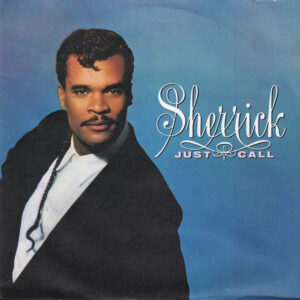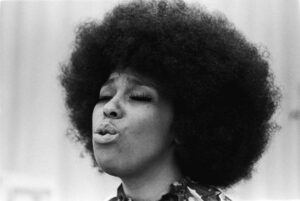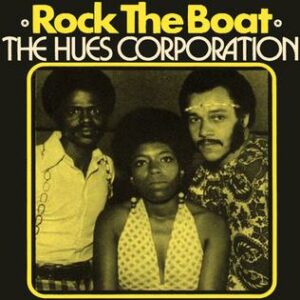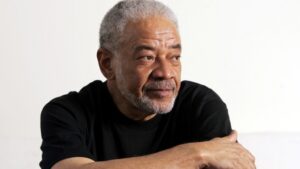The one thing I love most about the latest iteration of the blue-eyed soul revolution is their steadfast refusal to sacrifice melody in the name of progress or in deference to trend. While few blue-eyed soul artists have distinctive voices (the overt legacy of their soul influences too often overshadows these singers’ own inherent sound), artists like Duffy, Adele, Tuomo, Alice Russell and Jamie Lidell consistently stand out by leading with strong, accessible melodies throughout their catalogs. With his first album of original music in four years, Keep Coming Back, blues, rock and soul singer Marc Broussard keeps this neo-tradition alive with catchy songs you’ll want to hear covered for years to come. Yet, what distinguished Broussard from his peers on the vocally soaring Carenco, his last album of original material, was an instantly recognizable voice. Sometimes it’s best not to follow every peer tradition, especially when you’ve got the talent to lead.
Ever since Broussard’s 2002 debut, Momentary Setback , the Louisiana-bred artist has been compared by critics to everyone from rock n’ blues artist Delbert McClinton to soul greats like Otis Redding. The wide disparity in vocal comparisons have been driven by the dizzying range of material and vocal styles Broussard has presented on his four albums over the last seven years. Singing everything from swamp blues and acoustic rock to gut-busting soul and slick R&B, Broussard has competently used many vocal approaches to song. Yet, listening to Momentary Setback and its better, Carenco, what you hear is a young baritone with tenor range who is expanding and deepening his vocal style. The gritty Marc Broussard heard on subsequent albums, on the covers from Save Our Soul and now on Keep Coming Back, is one who is settling into a voice that’s pleasant and nuanced, but less than the earnest, powerhouse vocalist whose charms landed him coveted opening act gigs with Maroon 5 and The Dave Matthews Band.
What Broussard loses in breathless heights and concrete growls of his early work, he gains in songwriting maturity. Broussard has always shown promise as a songwriter in a simple confessional style that avoid metaphorical allusions, with diamonds like "Home" and "Let Me Leave." This time Broussard’s lyrics gain a muscularity and confidence that demands attention in ways his pen only hinted at on previous outings. Largely forsaking the rock and acoustic folk roots that kept him on the soul/rock fence, on Keep Coming Back, Broussard delivers several new classic soul and R&B melodies you want to hear the golden era artists from Stax, Motown and Philly International try their hands at; a return to the days when everyone covered everyone as long as the song was tight. You can just hear the Spinners killing Broussard’s "Saying I Love You," Bill Withers tugging at your heart on "Another Night Alone," or Dennis Edwards-led Tempts bringing "Power’s in the People" to the righteous Norman Whitfield zenith the tune demands.
These songs are good; really good. Still, on the Wonder flavored cut, "Real Good Thing," or on the epic Isley Brothers kick of "Hard Knocks," Broussard’s ample voice is up to the challenge of selling the song, but not the singer. If this is your first Broussard album, you probably won’t notice or care that Broussard has mellowed out, but if you’ve heard Broussard over the years, you’ll wish he pushed himself a little harder on the delivery.
Keep Coming Back isn’t all soul. But Broussard’s AC-ready pop tunes don’t encroach on his stone soul picnic, each proving welcome additions to this banquet. On the sun-shining "Why Should She Wait," featuring a barely discernible Sara Bareillis on backgrounds, Broussard is elastic and effortless-only "Man for Life" showcases Broussard’s joyous voice as well. Faintly dynamic backing vocals aside, Broussard isn’t the selling point on the open-hearted country duet, "When It’s Good," LeAnn Rimes is-sprucing up a rote tune with endearing personality for days. Broussard’s subtlety on the rambling "Going Home" strides out of potential pop obscurity by evolving into the most musically cinematic tunes in his catalog, thanks to Dan Dugmore’s pedal steel and the Love Sponge Orchestra strings chewing all the scenery.
As much of Black R&B and soul becomes more esoteric and increasingly privileges beats and rhythms over melody and lyric, contemporary Black artists continue to create more of a niche for soul singer/songwriters like Marc Broussard to fill. Broussard and the other neo-traditionalist, blue-eyed soul artists may not consistently display the chops of a Jennifer Hudson or even a Bilal, but as crafters of enduring, accessible tunes, they are creating a new musical inheritance of songs tomorrow’s pop and soul stars may actually want to cover. Classic songs inspire listeners to sing-along; classic voices inspire other singers’ voices. Keep Coming Back shows Broussard’s already got the songs; reclaim his early hunger, and Broussard could be tomorrow’s voice as well. Highly Recommended.
By L. Michael Gipson









